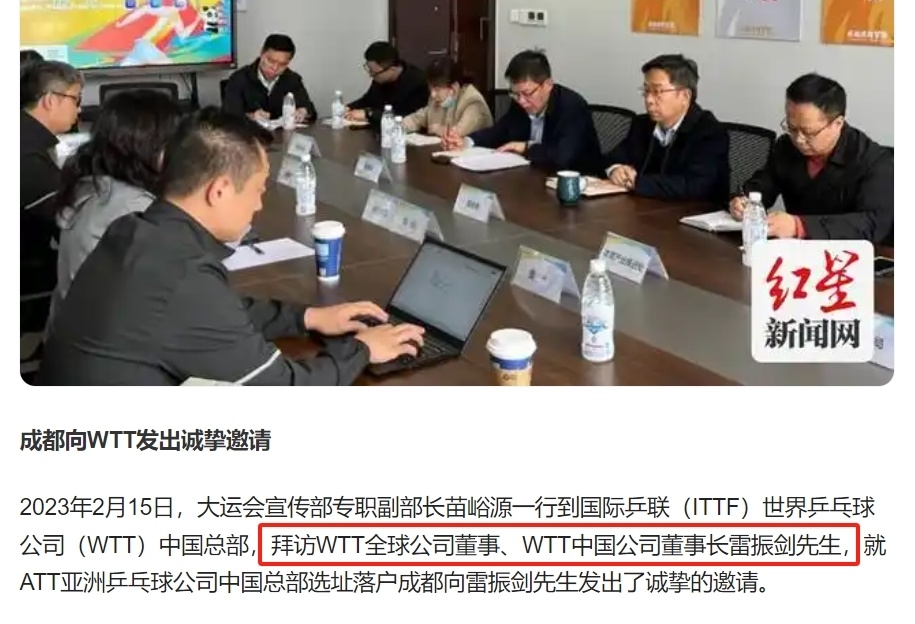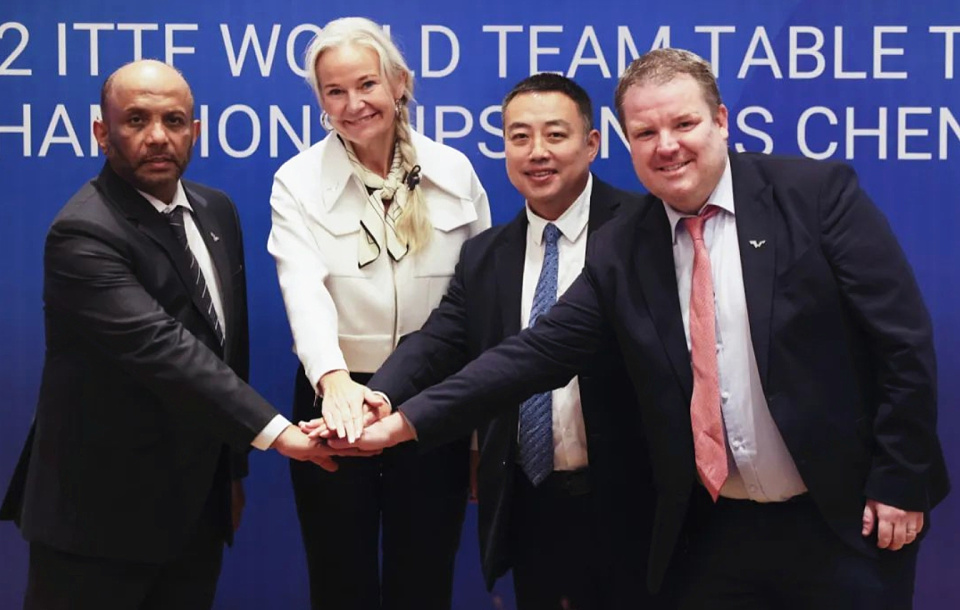As of now, even Fan Zhendong himself might not have anticipated that following his announcement of withdrawal from the competition, public attention has shifted to the financial issues of WTT. Previously, although several official media outlets raised questions about WTT's finances and equity, they were limited to local media coverage. However, on January 9th, Beijing time, "The Paper" published a lengthy article of over 3000 words on social media platforms, directly pointing out the murky nature of WTT's equity transactions and the delay in making financial reports public! As an influential national media outlet, openly demanding WTT to disclose its finances may be the most critical turning point in this incident so far.

It is not surprising that Fan Zhendong dared to challenge WTT head-on, as it stems from WTT's opaque financial reports over the past five years. Before Fan Zhendong officially announced his withdrawal from the world rankings, many foreign association players had questioned WTT's tournament revenue and player bonuses. However, due to these players' low influence, their concerns were left unresolved and hastily concluded. This time, however, things are different. The joint withdrawal of Fan Zhendong and Chen Meng, both singles champions at the Paris Olympics, has brought WTT under the scrutiny of global sports media. WTT, known as the World Table Tennis Professional League in Chinese, was established in 2019 with the fundamental purpose of helping global table tennis athletes increase their income. This was also repeatedly mentioned by Liu Guoliang, then Vice-Chairman of the WTT Council, as the "core focus" of work. However, as Liu Guoliang ascended from Vice-Chairman to Chairman of the WTT Council, while the players' income appeared to have increased, it remained insufficient to cover expenses.

When WTT was established, it had a benchmark sports association, which was the ATP (Association of Tennis Professionals) Tour. For example, mandatory participation for players and ensuring top players' attendance rates were learned from the ATP. However, unlike the ATP, which provides exemptions based on player age and career length, the newly established WTT did not have such provisions. What players found most dissatisfying was that the high bonuses offered by the ATP created a positive cycle for events, whereas WTT's bonuses were meager. For instance, in the highest-level Grand Slam event in the WTT series, the maximum single's champion bonus does not exceed 100,000(ChineseGrandSlam),whilethesingle′schampionbonusfortheFukuokaFinalsendingattheendof2024isonly40,000. It should be noted that even first-round participants in the 2024 US Open can receive a $100,000 prize!

Some might argue that other associations have been established for a longer time, have a broader audience, and thus, with higher total event revenues, can naturally offer higher player bonuses. However, this is also the reason why WTT has been continuously criticized in recent years: unclear finances! In the past three years, WTT only published its annual financial report in 2022. That year, under pressure from "internal liquidation," WTT disclosed a financial report with an annual income of 26.4million.However,whetherthis26.4 million represented a profit or loss remains unknown. Taking the highest single's bonus, the Chinese Grand Slam, as an example, on December 4, 2024, "China Sports Daily" reported the revenue composition of the WTT Chinese Grand Slam, including box office revenue of 57 million yuan, sponsorship revenue of 25 million yuan, and cumulative sales of catering, accommodation, and commercial activities amounting to approximately 29 million yuan. However, what is the total bonus for WTT Chinese Grand Slam players? Only $1.5 million. Is it a profit or a loss?

Therefore, "The Paper" calling for WTT to publish its financial statements is in line with public opinion. However, even more alarming is the mystery surrounding WTT's equity structure. According to Tencent Sports' "Hosen Special Edition," the relationship between ITTF (International Table Tennis Federation) and WTT is akin to that of superior and subordinate, similar to the relationship between the Chinese Football Association and the Chinese Super League company. Therefore, from its establishment in 2019 to 2021, ITTF held 100% of WTT's shares. However, by 2022, ITTF's shareholding dropped to 85%, with the remaining 15% mentioned in an ITTF meeting record from 2023 as having been transferred through a "debt-to-equity swap" to a company called "Beijing Wode Sports," whose legal representative is named Lei Zhenjian.

Furthermore, according to "Red Star News" in April 2023, Lei Zhenjian is also the director of the WTT Global Company and the chairman of the WTT China Company, as revealed in the article "New Chapters in Hosting Competitions and Cities, ATT Asian Table Tennis Company's China Headquarters Expected to Land in Chengdu."

According to Tencent Sports' "Hosen Special Edition," Lei Zhenjian is likely the former CEO of LeSports. However, what is most interesting is that this Lei Zhenjian once co-founded a catering company called "Beijing Racetrack" with two figures from the Chinese table tennis world, namely Ma Lin, the current coach of the national women's team, and Liu Guoliang, the chairman of the Chinese Table Tennis Association. Additionally, Tencent Sports' "Hosen Special Edition" wrote the following sentence: "In WTT's audit reports and meeting records, Lei Zhenjian's good relationship with Liu Guoliang is frequently mentioned."

Whether this involves Liu Guoliang is currently just speculation without concrete evidence. However, this time, "The Paper," an influential official media outlet, openly called for WTT to disclose its financial statements, indicating that regardless of whether there are financial issues, the lack of transparency is the main cause of misunderstandings and suspicions. Therefore, openness and transparency are the changes that table tennis athletes and fans hope to see the most.
